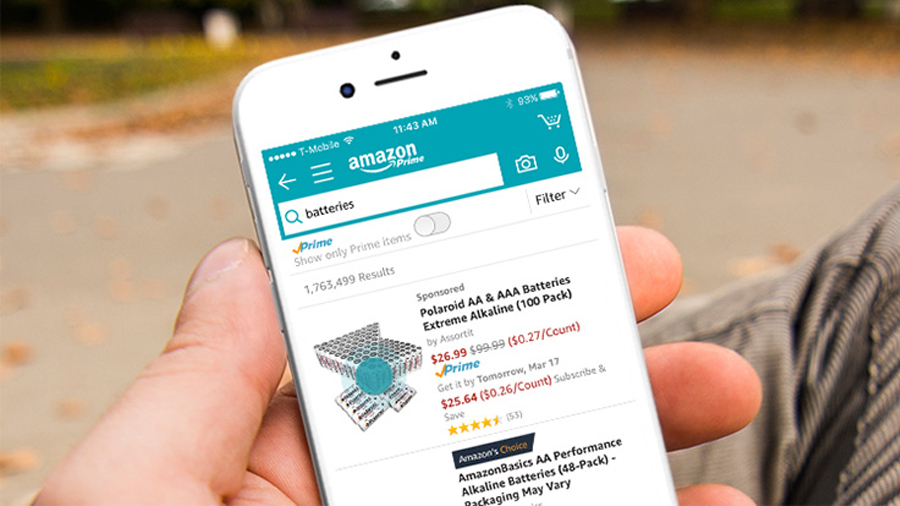Amazon's Alexaphone: what does the future hold?
A phone that allows easier Alexa integration could be just the start

Anyone who has kids will know the utter bewilderment when they contemplate life without mobile phones. “But how did you arrange your social life?” is often the anguished cry.
Well, skip a generation and our kids’ children will be asking how we lived without Siri or Alexa (or whatever they’d have morphed into by then).
It’s a sign of the ubiquity of digital assistants that our ears are assailed by the tinny tones of these electronic butlers, pretty much every hour or so.
But we’re about to push them even further. The news that HTC is offering Alexa on its U11 model was a departure that has some significance. Now, there was an instant way for users to leverage Alexa devices without the need to install further apps.
It wasn’t too long before HTC had a competitor in this arena and, in November, Wileyfox introduced native Alexa to its Swift 2, Swift 2 Plus and Swift 2 X models and it won’t be long before others join the crowd.
What does the Alexaphone actually do? Why would anyone want one? The first thing to make clear, is that they are not really Alexphones as such, access to the digital assistant has been added, in Wileyfox’s case via a download. This means that the connection to Alexa isn’t absolutely seamless, there is going to be a slight delay, but nothing that’s not insurmountable.
But the benefits are going to be felt when users start leveraging Alexa and the Echo device to make calls. The facility was there to call other Alexa users – and it was an option that came to the UK and Germany. But from this autumn, callers in North America have had another option up their sleeves: they will be able to call phone numbers direct too. There are no indications when this facility is coming to the UK, but it’s something that won’t be too far away,
Sign up to the TechRadar Pro newsletter to get all the top news, opinion, features and guidance your business needs to succeed!
It certainly heralds a major change. Back in the 80s, there were two dominant themes when it came to office of the future. One was the paperless office (pause for hollow laughter) and the other was full voice and data integration.
At the time, this seemed more of a challenge to complete, not just for technical reasons but for political ones too (that’s political with a small ‘p’, referring to the way that companies were structured) – the telecoms manager held sway over everything voice-related, just as the facilities manager held sway over heating and lighting and the IT manager controlled computers.
The arrival of the internet and the dominance of IP changed that, voice was gradually subsumed into IT and only the facilities manager remained outside ... for now.
Amazon in the office
We’ve become used to the idea of using voice over IP networks – who hasn’t used Skype when calling him from a business trip? But Amazon’s experiments with Alexa is taking us into another direction altogether and one that could have clear implications for business.
There are two reasons for this: firstly, there is now a clear connection between IT and facilities, the ability to control lights, security alarms, heating etc from a phone now becomes much easier. In truth, facilities managers have long had this facility but there is now the potential for it to be more widely available. Secondly, and even more significant, there is a link between the mobile phone and the ability to buy business equipment online.
Amazon launched its business division in the UK, just eight months ago. Already, according to press reports, it has 90,000 customers and is set to grow further.
The closer integration of Alexa with phones is going to make the procurement process even easier. Imagine, there's a new shipment of paper needed - just tell Alexa and it's on its way.
Clearly, this level of integration isn’t going to happen in the next few months – there’s a massive amount of work to do in integrating office systems to the procurement process, but it’s obvious which way we’re moving in and, don’t forget, that with Amazon the dominant player in delivering cloud services, the IT infrastructure could become very seamless indeed.
Are we looking at a scenario where, in 30 years time, Amazon is pretty much the sole player in the marketplace: a world where IT services run on kit bought through Amazon, hosted in an Amazon datacenter, where calls are made over Amazon Alexa and all tied together on an Amazon app bought on an Amazon phone.
That’s a long way from where we are now, the Alexaphone has only just been introduced and we're still at the stage of someone using his mobile to turn on the Christmas lights or dialling his mum to wish her happy Christmas. But just as today’s kids can’t envisage a world without mobile, will workers in 30 years time imagine a world without that level of integration? If it seems unlikely, just remember that 20 years ago, Amazon was just a bookstore.